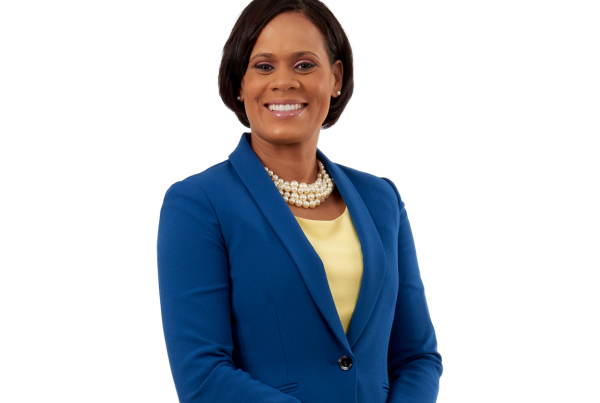Nina Peters, business relationship and sales manager, JN Bank St James and Trelawny, speaks to members of the Kiwanis Club of Rosehall.
Professionals are sometimes burdened with the need to maintain a certain lifestyle in order win clients or to fit into certain circles, however, business relationship and sales manager for JN Bank’s St James and Trelawny, says professionals need to manage their finances smartly, so as not to fall into unnecessary debt.
Highlighting statistics from a poll conducted by the Medical Association of Jamaica in 2018 among its membership, which indicated that a majority of practitioners were not prepared for retirement, Mrs Peters, underscored that many professionals fall into the same financial difficulties during their golden years.
“You may want to enjoy a certain lifestyle, and in fact, it may be necessary for you to have a certain profile, so that you can win clients, or be taken seriously in your profession. However, you need to be smart about it, so that you’re not spending funds unnecessarily, just to ‘keep up with the Jones’,” Mrs Peters cautioned as she spoke to Kiwanians in Rosehall, St James recently.
Outlining how they can accumulate capital, she said debt management has to be taken seriously, pointing out that some professionals borrow heavily to maintain a certain profile.
She advises professionals to consider the following to improve their financial status:
1. Service Your Debt
“Service your debt, and where possible, try to negotiate to pay them off quickly and at lower interest rates,” she advised. “If you have debts at different institutions, try to consolidate them. You could benefit from a lower monthly payment and possibly a lower interest rate,” she said.
2. Monitor and Manage Your Credit Card
Your credit cards must also be carefully managed and credit history carefully monitored Mrs Peters says.
“Keep your credit in check and monitor the use of your card vigilantly,” she counsels, adding that they should be even more focused on this during holidays and special seasons.
“Reduce the number of cards you have and transfer balances, where possible, to lower interest-yielding cards. You may even want to reduce the limit on your card to control your spending. Use your credit card wisely. It is a free loan, if you use it well: re-pay your loan on time; avoid the monthly interest; and don’t use it to spend on items that you would not have purchased, if you only had cash.”
3. Invest
The JN Bank business relationship and sales manager says what professionals should seek to do is accumulate capital for investment. In addition to managing their debt, she says they must save. She suggests using the 80/20 Rule. The rule dictates that persons should save at least 10 per cent of their income; give 10 per cent to charity, the church or to assist the needy; and use the remaining 80 per cent to finance their expenses.
4. Read Voraciously
Mrs Peters says it’s important for professionals to continuously improve their financial acumen by reading and consuming lots of content about personal finance from the news and books, and by carefully monitoring their expenses.
5. Have more than once source of income
Diversifying your sources of income to acquire capital to invest. She says beyond your primary source of income, as a professional, you must consider how you can earn from other talents and assets.
“Ask yourself, what you can do to supplement your income. The people we all consider wealthy know that this is the key to success,” says Mrs Peters.
“Is there an asset you can earn from? Do you own property that you can rent? Do you have land which you can lease or farm? Are there fruit trees in your yard, from which you can earn an income? Can you take on a second job lecturing in the evenings? Are you a good speaker and can earn from speaking engagements?” she says are questions one should ask themself.
6. Take Care of Your Health
Mrs Peters advises professionals to take care of their health. She says it was important for professionals to maintain good health and that life insurance plans would assist them, if the need arises, pointing out that often health is neglected as persons work to build themselves professionally.
“Exercise and eat right. Don’t treat your health casually, because I guarantee you, you’ll pay for it,” she warns.





